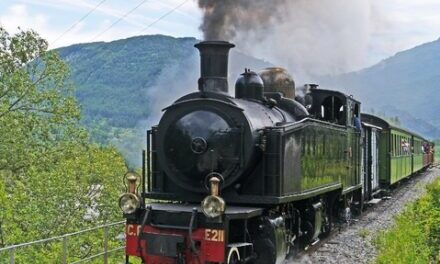
Railways
It is said that the railways were the supreme achievement of the Victorian era in Britain. Cornishman Richard Trevithick (1771-1833) was the first to build a series of short-range prototypes in 1801-4, developed from his portable steam engines that were used in the Cornish mines, but his engineering talent then turned in another direction. The world’s first operational railway lines were in fact opened in the north of England in 1825-6.
They provided cheap, fast transport for passengers and commerce alike. Railway systems were later exported to countries such as the USA, Australia, India and to the continent of Europe.
The railways changed daily lives. By the ingenuity of engineers like Stephenson, Brunel and Locke, trains opened up the whole country to one and all. Commuting into cities became a possibility, enabling families to live further out in newly-built suburbs. Seaside resorts enjoyed thousands more regular visitors and sports such as football were able to establish national leagues.
Initially there was some resistance from landowners, farmers and those who earned a living from the canals, but the advantages soon overcame this. There were, however, many fatal accidents in the early days, with previously unknown speeds of around 30mph catching some people unawares.
(Image: pxhere.com / CC0)
